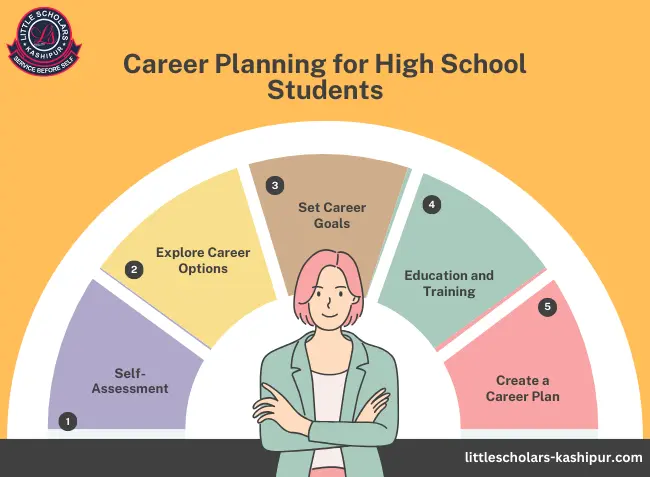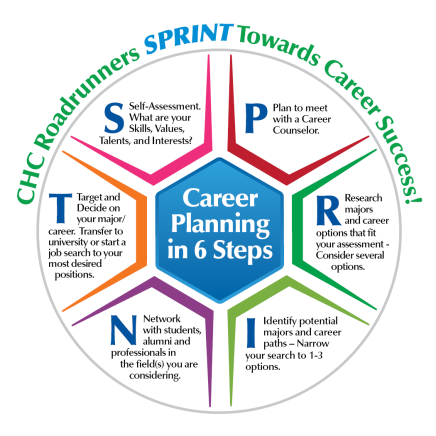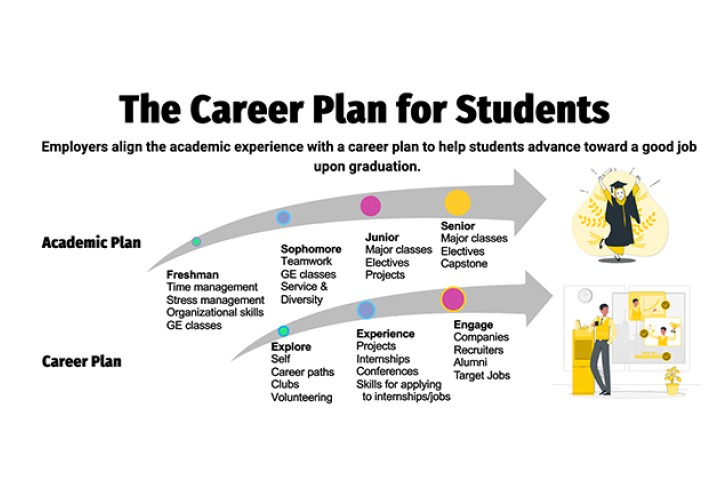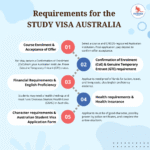Career Planning for Students: A Roadmap to a Successful Future
Introduction: The Importance of Career Planning for Students
Career planning is an essential process that helps students navigate their future careers. It involves identifying personal interests, strengths, and goals, and matching these to suitable career paths. Whether students are in high school or college, starting the career planning process early can give them a clear direction, enhancing their chances of professional success and satisfaction.

1. Understanding the Basics of Career Planning
1.1 What is Career Planning?
Career planning is a structured process in which individuals explore their interests, values, skills, and goals to determine the career paths that best align with their personal attributes. This process often involves research, self-assessment, and exploration of educational or professional opportunities. It allows students to make informed decisions that can lead to long-term success.
1.2 Why is Career Planning Important for Students?
For students, career planning helps them make decisions about their education, job experiences, and skill development. By starting early, students gain clarity about what they want to achieve, reducing uncertainty and guiding them through the vast array of career options available. It helps students stay focused, motivated, and organized while pursuing their educational goals.
2. Key Steps in Career Planning for Students
2.1 Self-Assessment: Understanding Your Strengths and Interests
The first step in career planning is self-assessment. Students should take time to evaluate their strengths, interests, values, and skills. This helps them identify careers that align with their natural abilities and passions.
-
Identify Your Strengths: Consider your academic performance, extracurricular activities, and personal skills.
-
Explore Your Interests: Think about the subjects or hobbies that excite you, such as writing, engineering, or social work.
-
Consider Your Values: Think about what’s important to you—whether it’s job stability, creativity, or the opportunity to help others.
2.2 Research Career Options
Once students have a better understanding of their strengths and interests, it’s time to explore potential careers. Researching different fields helps students understand the qualifications, job outlook, and required skills for various professions.
-
Use Online Resources: Websites like CareerOneStop or My Next Move offer valuable information about career options, job duties, salaries, and required education.
-
Talk to Professionals: Networking with professionals or finding internships provides real-world insight into different careers.
-
Consider Job Growth: It’s essential to choose a career that has growth potential, ensuring job security in the long run.

2.3 Set Clear Goals
Setting specific, measurable, achievable, relevant, and time-bound (SMART) goals is a crucial step in career planning. Students should identify both short-term goals (such as choosing a major or internship) and long-term goals (such as landing a job in a specific field). Clear goals provide direction and motivation, ensuring students stay on track.
-
Short-Term Goals: These might include getting good grades, gaining experience through part-time jobs, or completing a relevant course or certification.
-
Long-Term Goals: These could include securing a full-time job in a specific industry or advancing in a chosen career path.
2.4 Gain Experience Through Internships and Volunteering
Gaining hands-on experience through internships, volunteering, or part-time jobs is invaluable. These experiences provide practical knowledge and help students develop essential skills such as communication, teamwork, and problem-solving. It also builds their resume, making them more competitive in the job market.
-
Internships: These offer real-world experience and networking opportunities in a student’s chosen field.
-
Volunteering: Volunteering allows students to build skills while contributing to their communities.
-
Part-Time Jobs: Even part-time work can provide experience in customer service, teamwork, and responsibility.
2.5 Education and Skill Development
The foundation of any career path is education. Students should choose a degree program or certification that aligns with their career goals. Whether it’s pursuing a bachelor’s degree, enrolling in vocational training, or taking online courses, continuous learning is key to career success.
-
Higher Education: For many career paths, a college degree is essential. Students should research the educational requirements for their desired professions.
-
Skill Development: In addition to formal education, students should focus on developing both hard skills (e.g., technical abilities) and soft skills (e.g., communication, problem-solving).

2.6 Networking and Mentorship
Building a strong professional network is crucial for career growth. Networking helps students connect with professionals, learn about job opportunities, and gain valuable advice from experienced individuals. Seeking mentorship from industry experts provides guidance and can significantly influence career development.
-
Attend Career Fairs and Networking Events: Many schools host career fairs where students can meet potential employers and learn about various career opportunities.
-
Join Professional Associations: Becoming a member of professional organizations helps students stay informed about trends and developments in their field.
-
Seek Mentorship: Mentors offer valuable career insights and guidance to help students navigate challenges.
2.7 Job Search and Interview Preparation
Once students are ready to enter the job market, it’s important to learn how to effectively search for jobs and prepare for interviews. This includes writing a strong resume, building a LinkedIn profile, and practicing common interview questions.
-
Craft a Compelling Resume: Your resume should highlight relevant skills, experiences, and accomplishments.
-
Master Interview Skills: Prepare for interviews by practicing answers to common questions and researching the company.
-
Use Job Search Websites: Platforms like LinkedIn and Indeed can help students find job openings and apply directly.
3. Career Planning Tools and Resources
3.1 Online Career Assessment Tools
Online career assessment tools can help students discover career options that align with their skills and interests. Websites like CareerExplorer and O*Net Online offer free assessments that provide insights into potential career paths based on personality traits and preferences.
3.2 Career Counseling and Support Services
Many schools offer career counseling services to guide students in their career planning process. Career counselors can help students with resume writing, interview preparation, and job searching. They also provide advice on career paths and personal development.
-
Visit Career Services: Check with your school’s career services office for support with career planning and job placement.
-
Seek Professional Advice: Consider consulting a career coach for personalized guidance and career strategy.

4. The Role of Parents in Career Planning for Students
4.1 Encourage Exploration
Parents can play a significant role in their child’s career planning by encouraging exploration and self-reflection. Encouraging students to explore different fields, attend career fairs, or pursue various extracurricular activities helps them discover their interests and strengths.
4.2 Provide Support and Resources
Parents can help by providing access to resources, such as career books, professional networking opportunities, or even job shadowing experiences. Supporting their child’s education and career goals is essential for long-term success.
4.3 Be a Positive Role Model
Parents who model hard work, financial responsibility, and professional growth provide valuable lessons for their children. By showing how to navigate a career successfully, parents inspire their children to strive for their own professional success.
5. Frequently Asked Questions About Career Planning for Students
Q1: When should students start career planning?
A1: It’s never too early to start career planning! High school students should begin exploring career options and considering their interests. College students can refine their plans and focus on skill development, internships, and networking.
Q2: How can students choose the right career path?
A2: Students should start by assessing their strengths, interests, and values. Researching various careers, seeking advice from professionals, and gaining practical experience through internships will help them make an informed decision.
Q3: How can networking benefit students?
A3: Networking provides students with valuable connections, career advice, and job opportunities. By building relationships with professionals, students can open doors to internships, job offers, and mentorship.
Q4: What resources are available for career planning?
A4: Resources such as career counseling, online career assessment tools, career fairs, and internship programs are invaluable for students. Many schools offer career services that guide students through the entire planning process.
Conclusion: Setting a Clear Path for Success
Career planning is a vital process for students that provides the foundation for their future success. By following a structured approach, including self-assessment, researching career options, setting goals, and gaining experience, students can confidently step into the workforce and thrive in their chosen careers. The earlier students begin career planning, the better prepared they will be to make informed decisions and achieve their goals.









